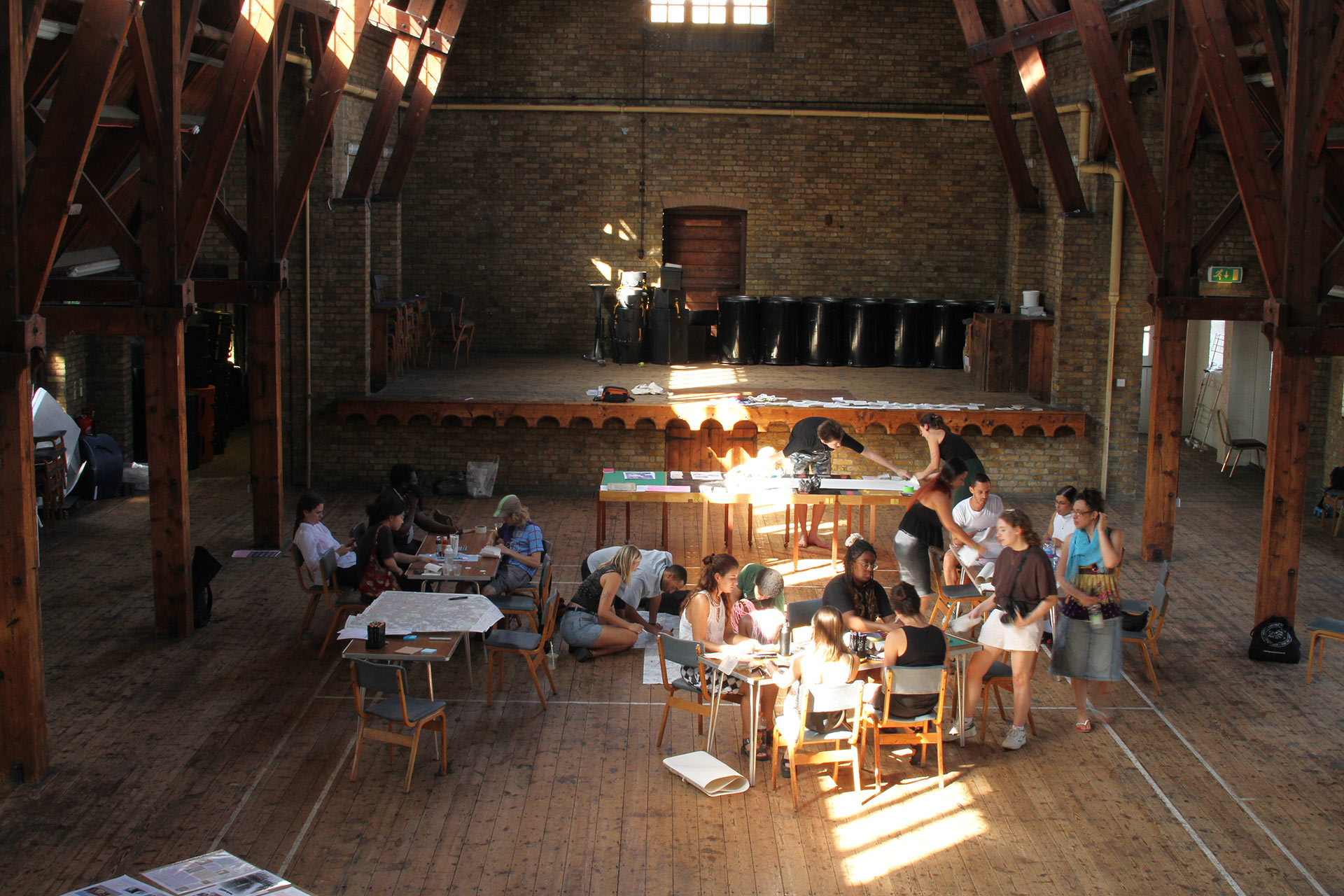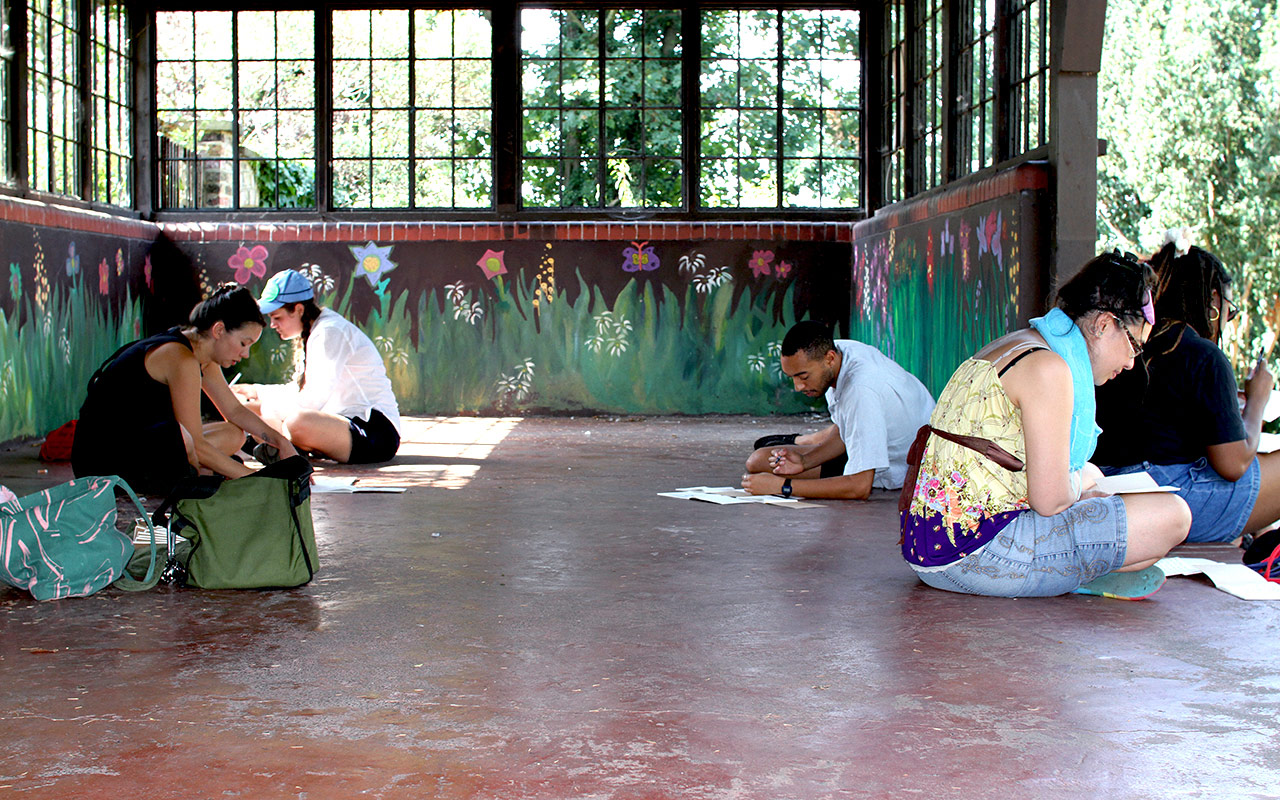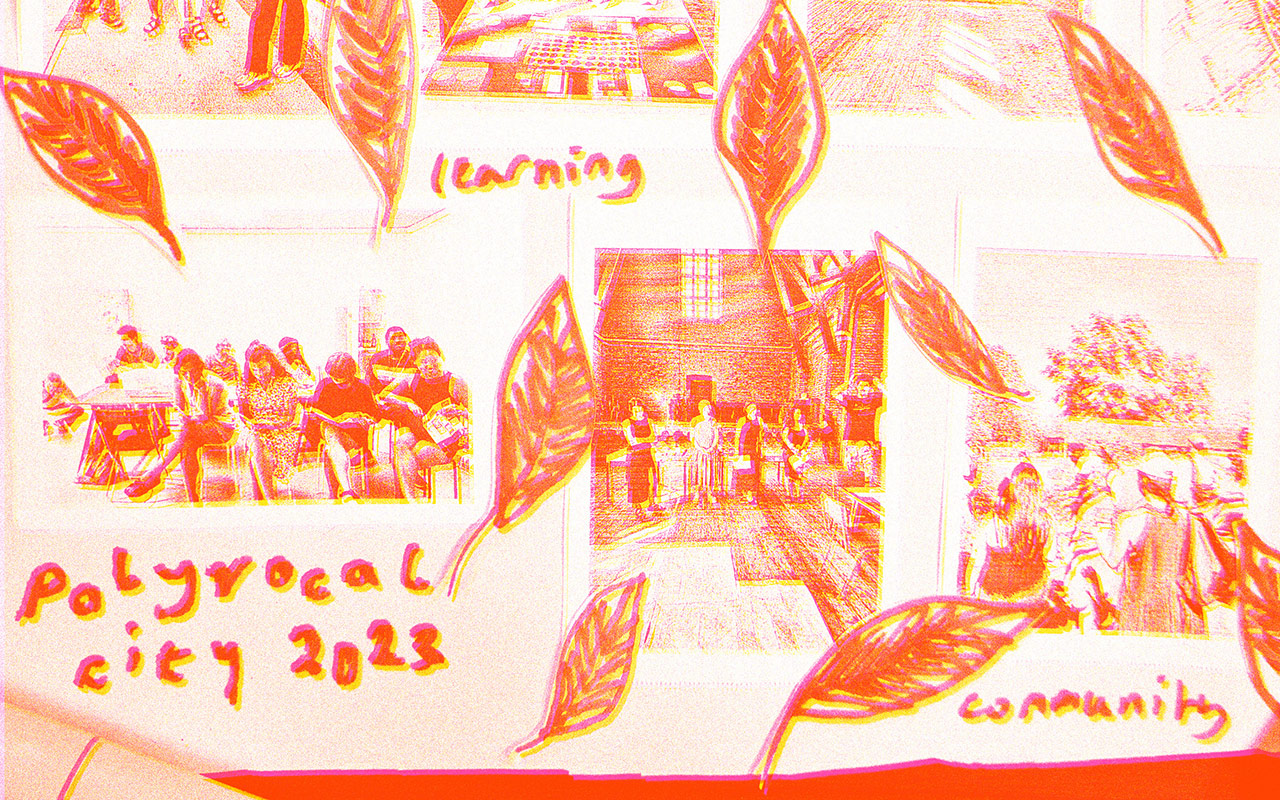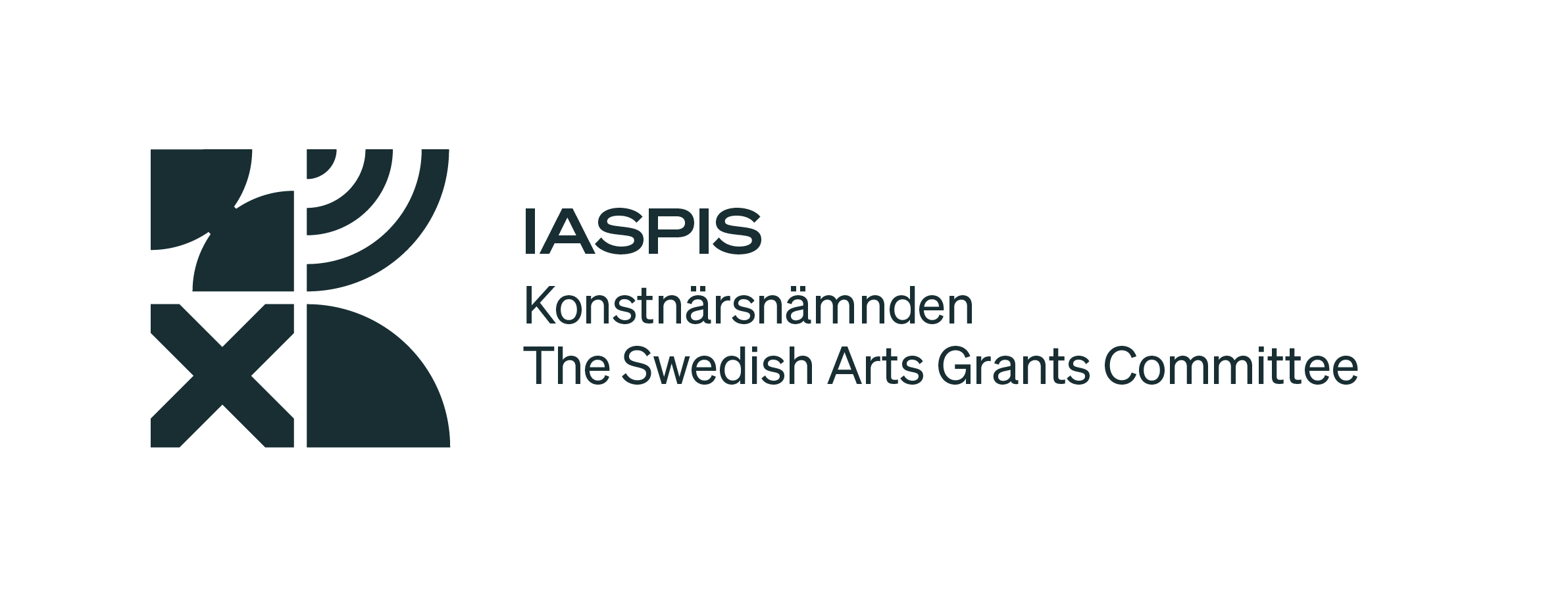Issue #10
PolyVocalCity
Markas Fortunatas Klisius, Lou-Atessa Marcellin, Betty Owoo, Robin Finch Pickering, Rebecca Sainsot-Reynolds
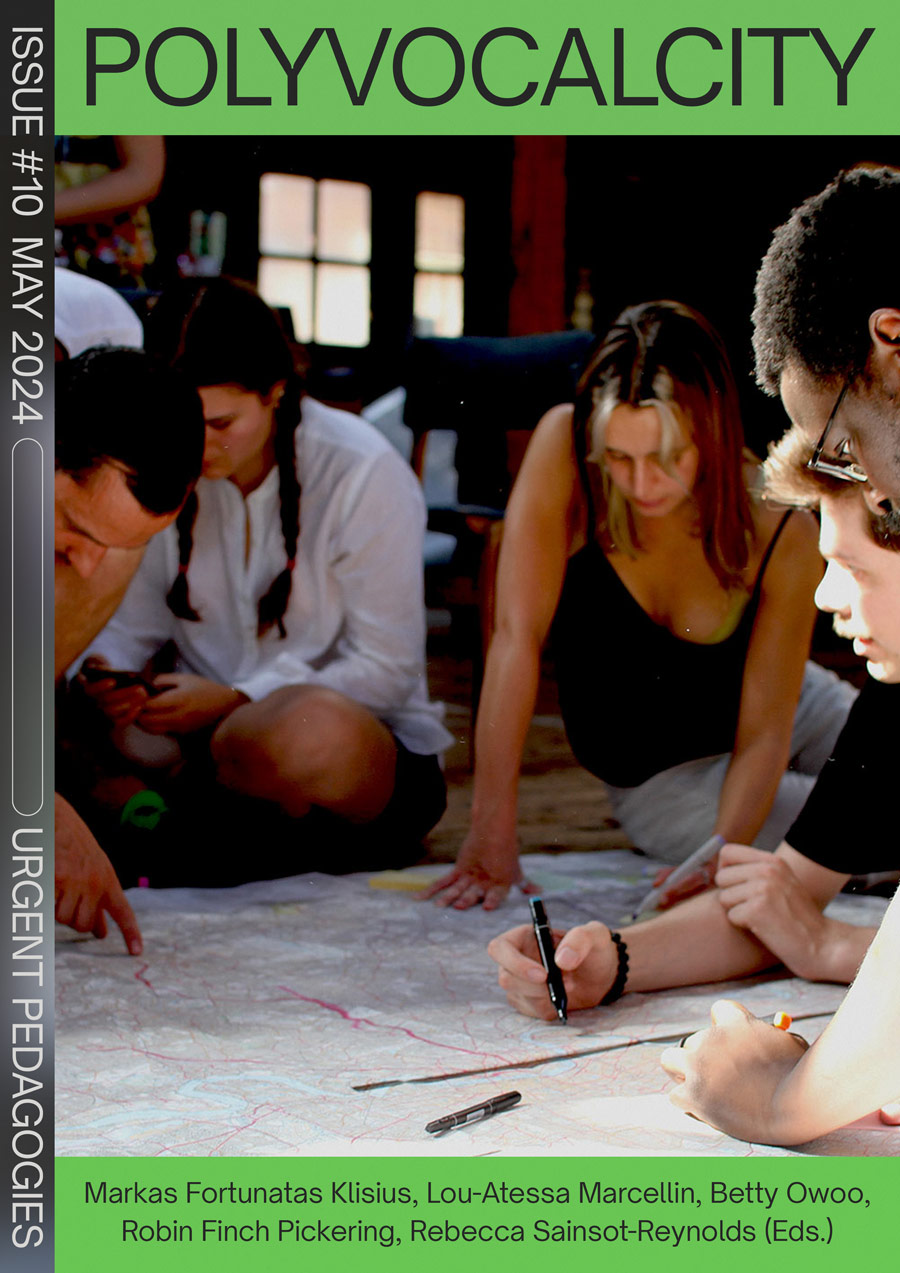
CATEGORY
Welcome to Issue #10: PolyVocalCity, collectively guest edited by Markas Fortunatas Klisius, Lou-Atessa Marcellin, Betty Owoo, Robin Finch Pickering and Rebecca Sainsot-Reynolds. This issue is introducing Theatrum Mundi’s educational programme that adopts a non hierarchical model for knowledge exchange bringing together academic and lived experience nurturing relationships based on mutual respect gained by exposing each other’s strength and vulnerabilities.
‘Sympoeisis is a simple word; it means ‘’making with’’. Nothing makes itself; nothing is really autopoetic or self-organising […] Sympoeisis is a word proper to complex, dynamic, responsive, situated, historical systems’.[1]
Theatrum Mundi is a centre for research and experimental learning that seeks to reimagine our cities and who has agency in making them. We do this by facilitating inter-disciplinary and inter-generational conversations that bring diverse practitioners together. Through co-creation and knowledge sharing, we develop methods for world-building and storytelling to imagine alternative narratives for our cities.
In 2022 we initiated the educational programme PolyVocalCity with the will to generate knowledge through making and hence generating new strands of research informed by lived experiences. After its first edition we felt the need to anchor the programme in a specific place and since 2023, we have been running PolyVocalCity from Croydon Town, part of the London Borough of Croydon, a local government district of Greater London. Croydon has gone through several developments and redevelopment throughout its history. In the 1960s, Croydon became a major commercial district housing some of the biggest brands such as the Nestle building and the Whitgift Center which was for a while the biggest in town shopping centre in Europe. But Croydon is also associated with law enforcement, housing Lunar House, an immigration reporting centre. For some people it’s a place they have to go through to regularise their status, for others it’s simply a shopping destination. But for some it’s a home, a place that houses communities and their history. Croydon was a key place in the birth of dubstep, its art school (now part of Croydon College) was attended (briefly) by David Bowie, art organisations such as Turf Projects, and Stanley Arts contribute to its diversity, its dynamism and making it a place worth visiting and living in.
In the last few years, the area has suffered economic decline and the level of poverty is high in a borough which declared bankruptcy three times between 2020 and 2022. Croydon is currently living through a new phase of redevelopments and its communities are facing new challenges as a result of aggressive strategies by private developers and public bodies’ political and economical strategic failures.
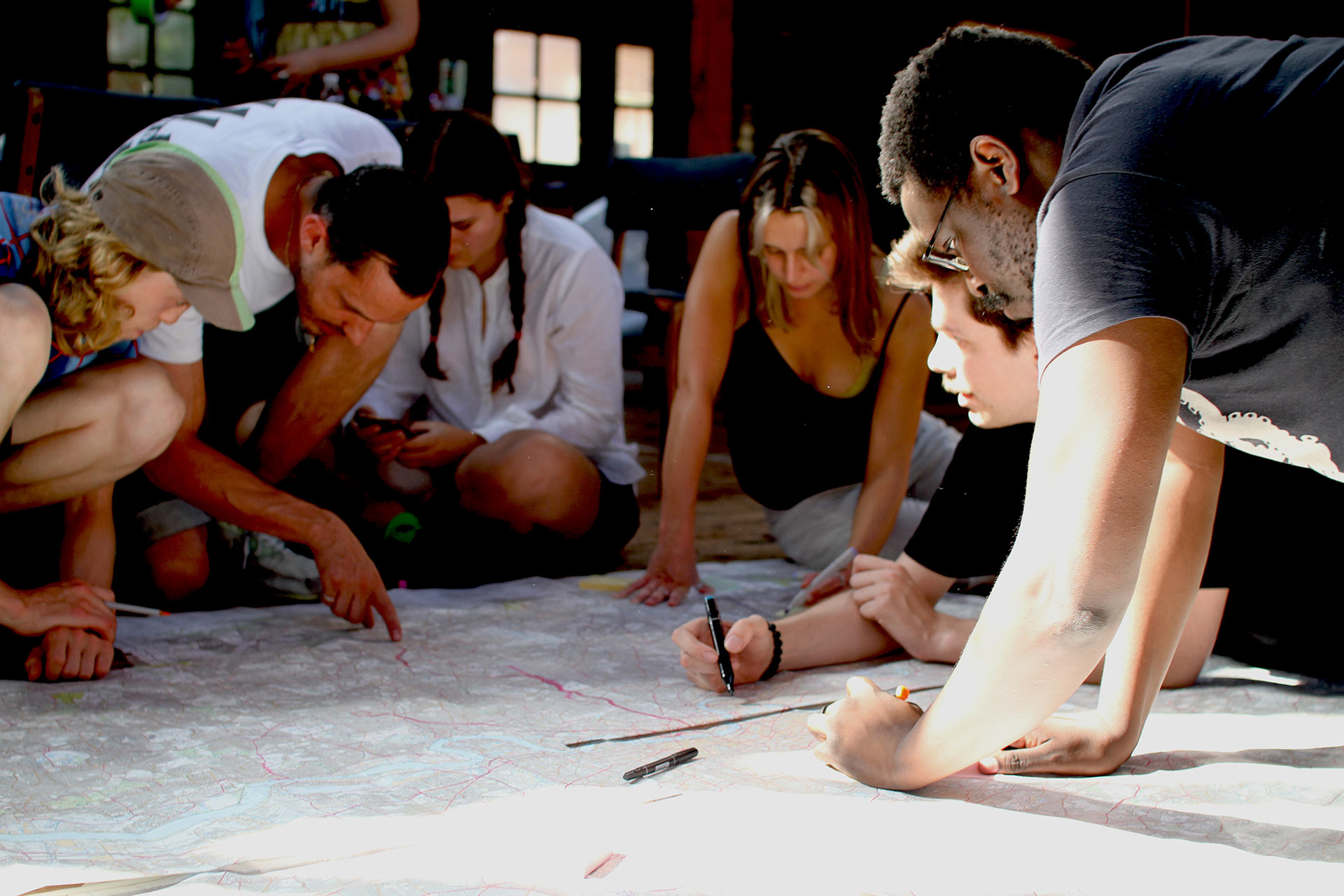
PolyVocalCity: Restaging Croydon, Saturday school, Quaker Hall, Croydon,2023. Photo: Lou-Atessa Marcellin. Image: courtesy of Theatrum Mundi
The first thing that popped into my head for this introduction is a song by Robert Wyatt called Shipbuilding. I’m not sure why, it just came instinctively. After looking up the song, I learned that the version sung by Wyatt was written by Elvis Costello and the music was by Clive Langer. The song talks about how a town comes to prosperity building new ships for the war (The Falklands War of 1982) while its young people are sent to their death fighting the very same war. The song was made to commemorate people who lost their lives fighting a war that did not concern them and their collective pain. The song evokes the duality and complexity of how the regeneration of a place can both bring wealth and destruction for its communities.
And then we have this word, Shipbuilding. What an evocative word if we understand it as a building afloat, a moveable home, a Noah’s arc or perhaps a tool for destruction?
As Wyatt sings ‘Is it worth it?’
Or, is this the end of a community, the displacement of people and the erasure of their memory?
What makes a place, a place?
When conceiving the PolyVocalCity: Re-Staging Croydon edition, we wanted to invite practitioners to propose new narratives for social and environmental justice in Croydon, it was clear from the start that this could only happen by engaging with the people who make that place. We could not have engaged with Croydon without the invitation of our peer organisations Turf Projects and The Croydon Placemaking team who were able to introduce us to its communities and the richness and complexity of its history and its current transformation. We could not have engaged with it without creatives who live and work in Croydon and could guide us through its subtleties, hidden gems and its stories. Only through the people and their life can you really engage with what a place is.
The programme adopts a non hierarchical model for knowledge exchange bringing together academic and lived experience. Participants learn from one another, alternatively becoming teachers and students. Through that process a new kind of relationship emerges, one that is based on making with and a mutual respect gained by exposing each other’s strength and vulnerabilities. Beyond working together, relationships are formed by hanging out, eating together, going for a walk, being blindfolded and guided. A process of trust is established and from those experiences participants are able to make kin with each other and the place they share.
As Donna Harraway describes it in her book Making Kin Not Population:
‘We use the term ‘’making kin’’ in two ways here – both processual. One is ‘’making for the first time’’ as in reproduction or creating a new relationship. But ‘’making’’ also refers to the daily actions that transform partial relations into deeper ones, kinship crafted through the exchange of things, sharing activities, and other practices. This second sense of ‘’making’’ is how kinship is sustained over time. Thinking about making kin the second way, we grasp that kinship can be blocked, broken, repaired – indeed the very ability to make, have and maintain kin can be stratified.’ [2]
The programme success lies in these processes of making with, making for each other, crafting ‘nameless relations’ [3] through intimacy, one that can only be acquired through time. We were concerned that the programme could only superficially engage with Croydon but through these experimental processes and a will to not come to any definite conclusions, participants were able to make kin with the place and form individual and collective relationship with its communities.
The different contributions by Markas Fortunatas Klisius, Rebecca Sainsot-Reynolds, Robin Finch Pickering and Betty Owoo, are propositions to engage with Croydon using storytelling as an access point, an entry into a place that we might or might not belong to but can all share a sense of commonality with. Through a journey of rituals, routines & improvisations Markas and Rebecca invite us to dive into Croydon’s histories of care, solidarity and resistance while Robin takes us on a walk through ‘Croyden’, inviting us using a series of prompts to notice the invisible, the disregarded and go off track to commune with the place in new ways. Betty embarks on a self-reflecting journey in Croydon with a series of field notes that explore how ‘sensory experiences can offer a new reading of Croydon and grow into strategies to retain the multifaceted identity of a place.’[4] In her conversation with B Atherton, director of the artist and community run space Turf Projects, they discuss artistic processes to conceive alternative futures.
Making kin is a process requiring an openness to vulnerability and slow encounters. It’s an invitation to make relations and to belong to worlds we imagine together. Makin Kin becomes the learning methodology that enables us to connect to a place, its human and more-than-human.
Contents
PolyVocalCity: Ritual, routine and improvisation
Markas Fortunatas Klisius & Rebecca Sainsot-Reynolds
Field Notes: Findings from Crocus Valley
Betty Owoo
Sounding Croydon
Markas Fortunatas Klisius, Betty Owoo, Robin Finch Pickering, Rebecca Sainsot-Reynolds
1.
Donna Haraway, 2016. Staying with the Trouble: Making Kin in the Chthulucene. Duke University Press.
2.
Donna Haraway 2018. Making Kin Not Population. Edited by Adele E. Clarke and Donna Haraway, Prickly Paradigm Press.
3.
Donna Haraway 2018. Making Kin Not Population. Edited by Adele E. Clarke and Donna Haraway, Prickly Paradigm Press.
4.
Betty Owoo,2024. Field Notes.
is a Croydon-based spatial designer and writer interested in the complex challenges of designing in an urban environment. Trained in architecture, she uses design and communication to tell stories and solve problems in the physical and digital realm. She was a member of the Theatrum Mundi PolyVocalCity: Restaging Croydon cohort, 2023.
is Director at Theatrum Mundi. Lou researches ideas of ecosophy in the ecological framework which interconnects social and environmental spheres. With a background in fine art, a graduate of the Royal College of Art (MA Performance) and UAL Camberwell College of Art (BA Photography), she founded the multidisciplinary research platform Diaspore and a seasonal school called RONCES exploring the making of landscapes in the rural and the urban environment. She has been a visiting lecturer for UAL, the Royal College of Art, The Slade and Goldsmith University.
is a migrant researcher, educator, writer, and curator. Positioned at the intersection of migration studies, situated learning and architecture, their practice attempts to encapsulate the spatial, educational and technological parameters of infrastructural and systemic inequality, state violence and environmental transformations. Their academic background is in anthropological and curatorial studies, having received an MA in Material and Visual Cultures at UCL and BA in Culture Criticism and Curation at CSM.
is an artist, educator and researcher working with site, story, play and object making processes through the lens of the work existing in the ‘being-together’. Unearthing stories through in depth investigations into the physical, historical, imagined and social histories of place and being. Rebecca delivers the young people’s programmes at Company Drinks in Barking, and is researching histories of urban play through work with Triangle Adventure Playground.
is a visual artist from Croydon, currently on the Conditions studio course. He is the recipient of the Vanguard Studio award 2022 and has recently completed a solo show in Camberwell space that involved 6 workshops led by visiting artists. Selected exhibitions include Stolen Goods at Filet gallery, Good day, big miss stake at Kate, Amsterdam, Valve in Waterloo, Rites of spring in Lewisham Arthouse and the Bauhaus 100 festival in Dessau.
